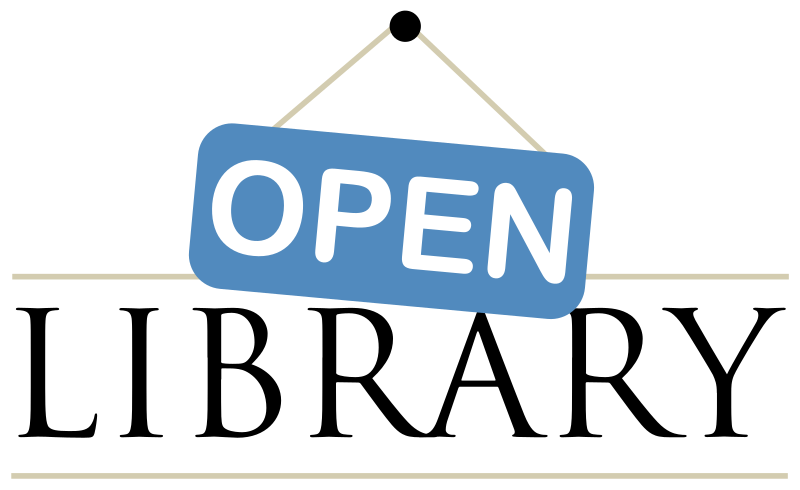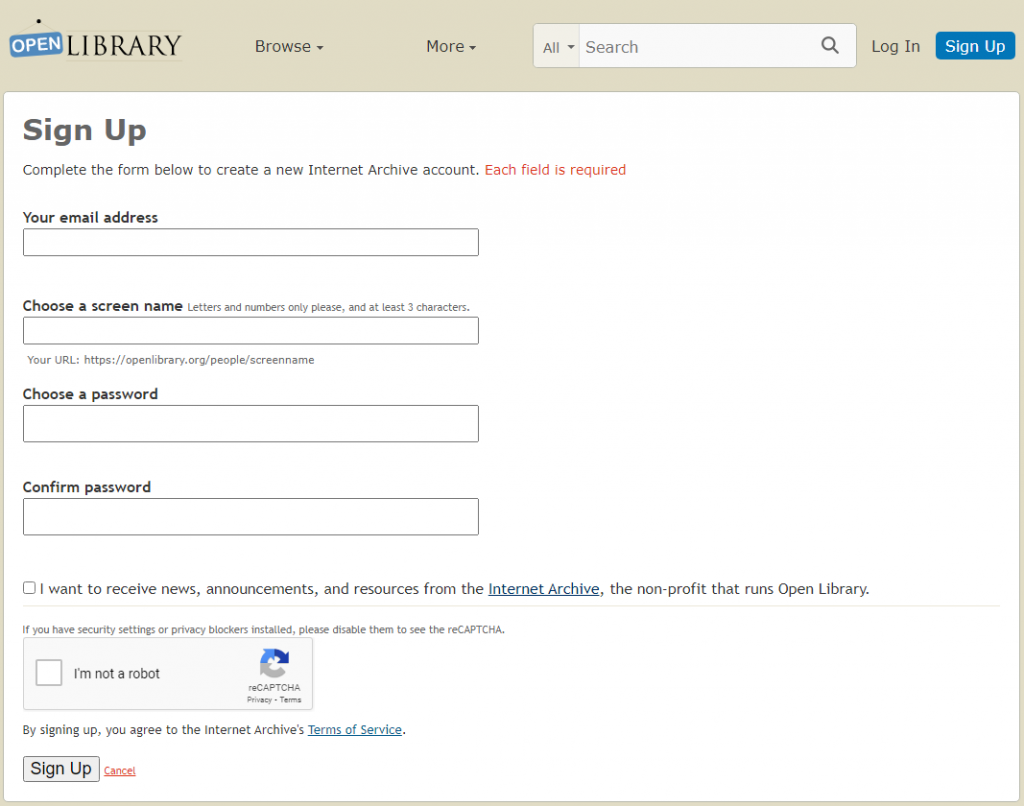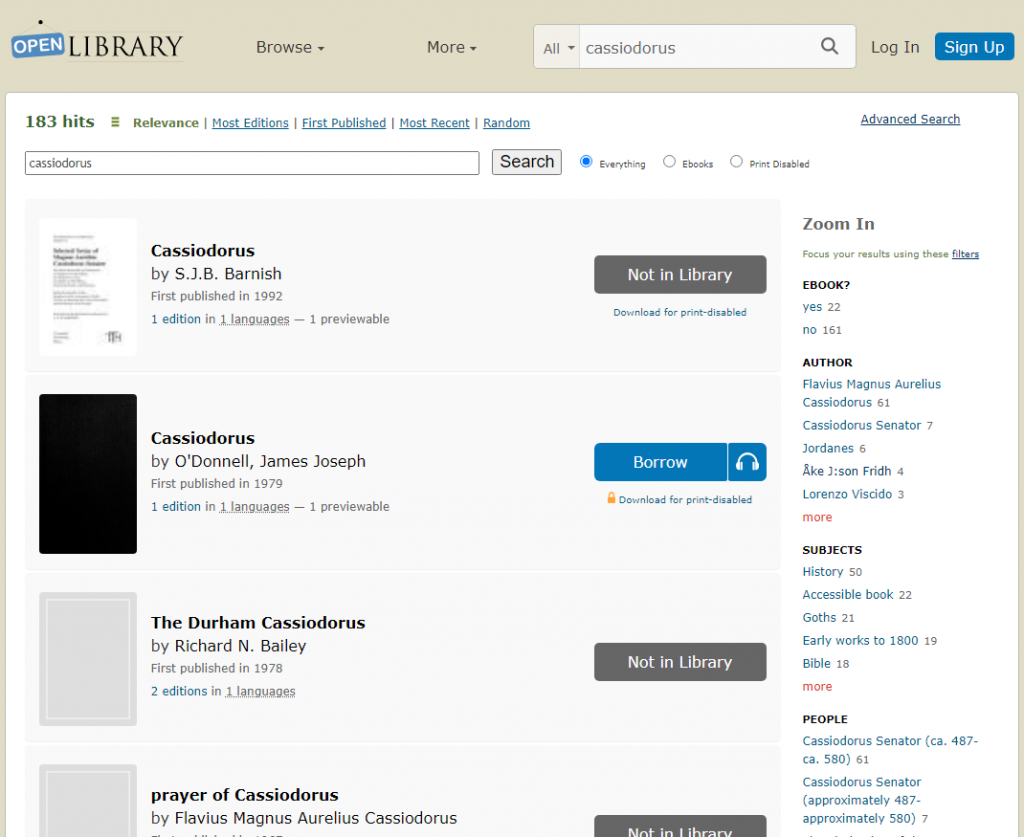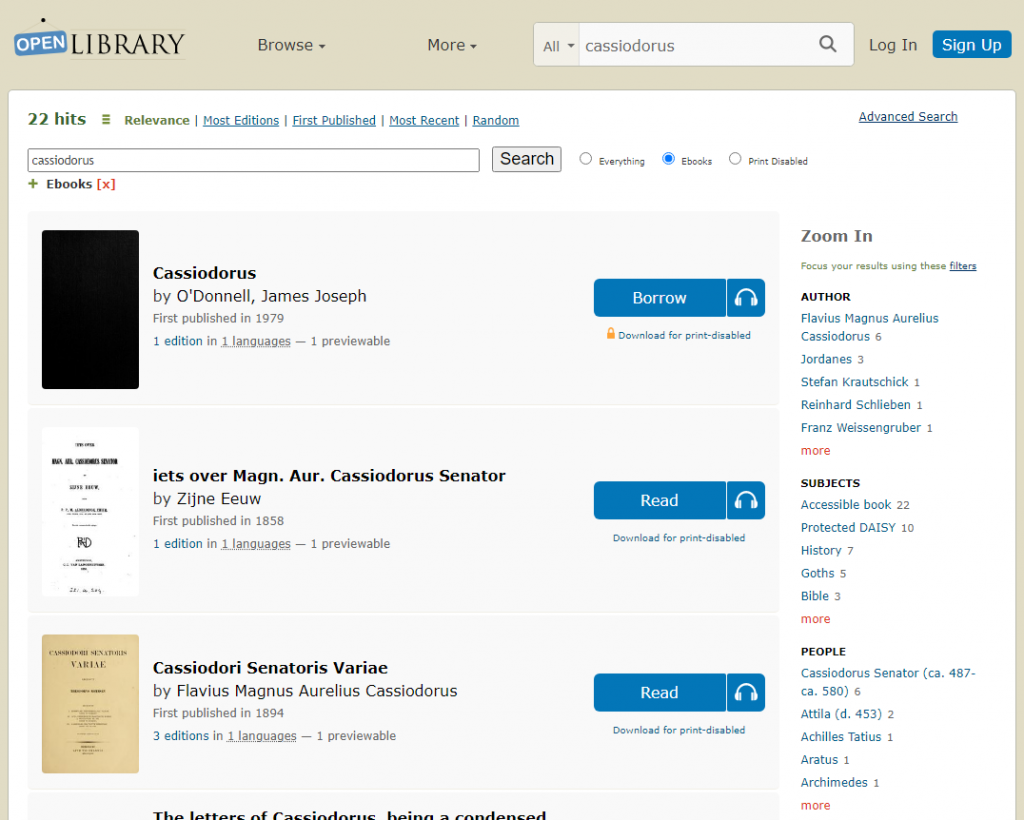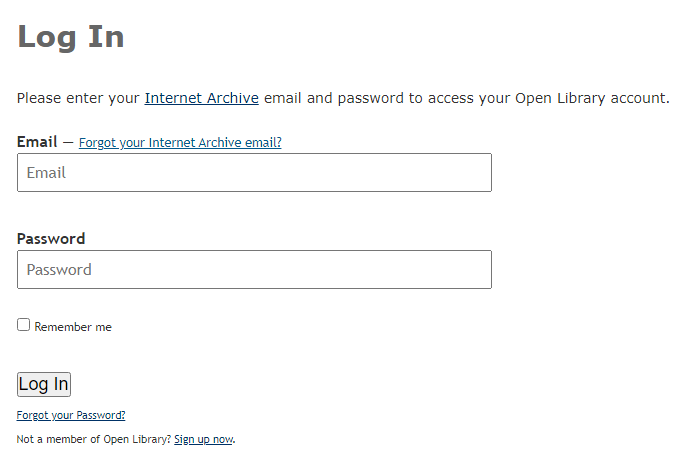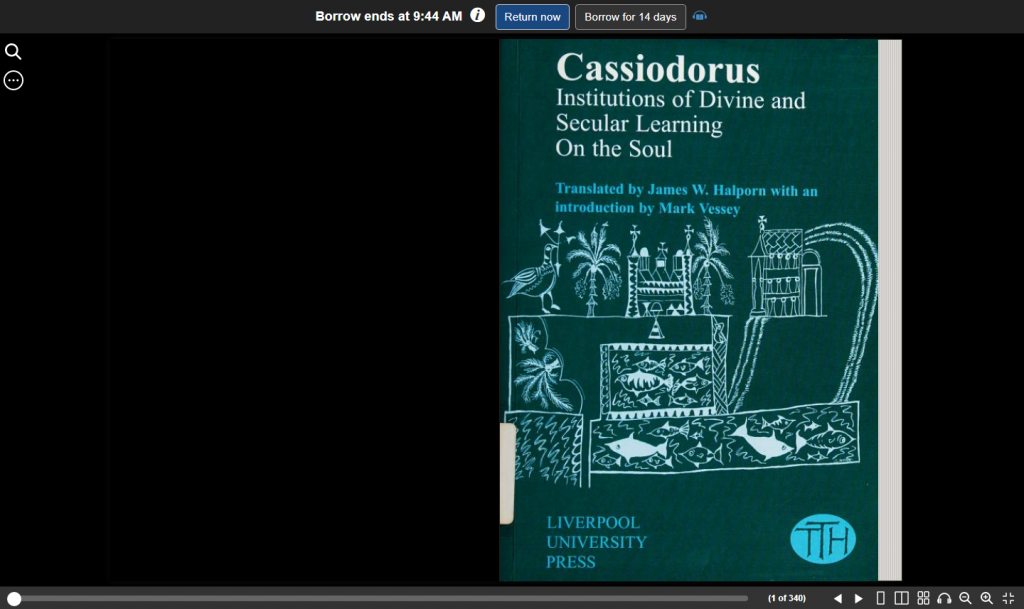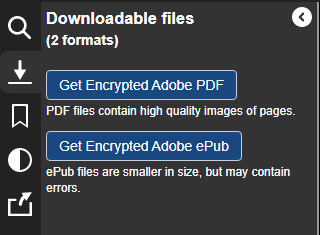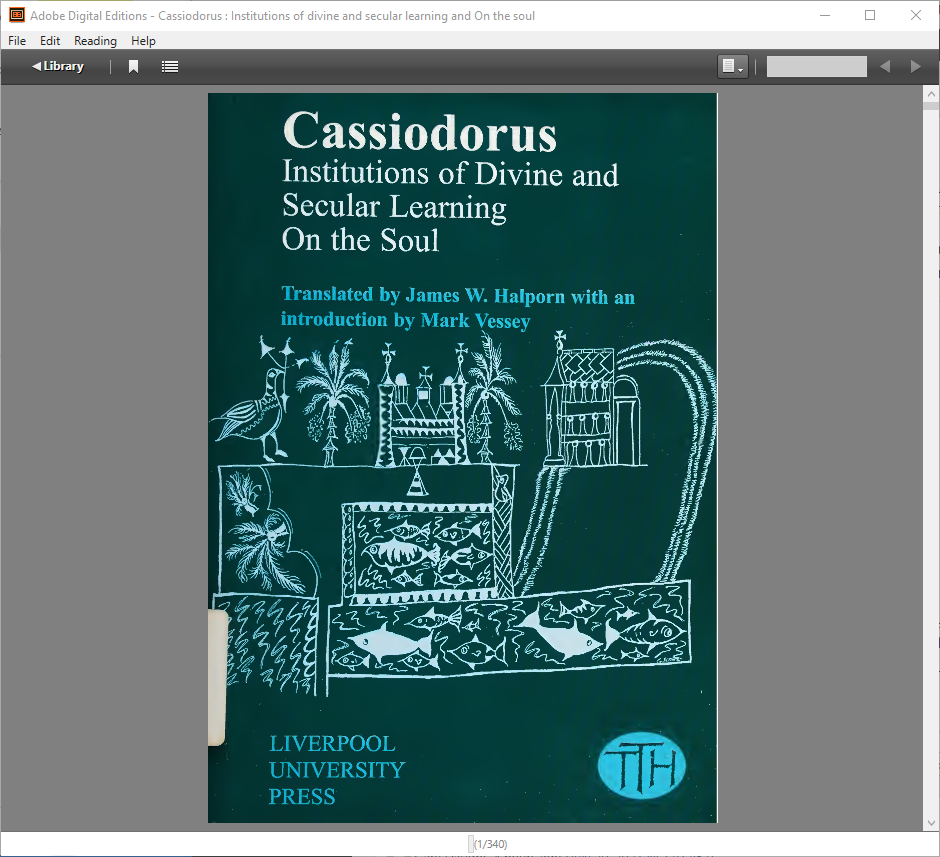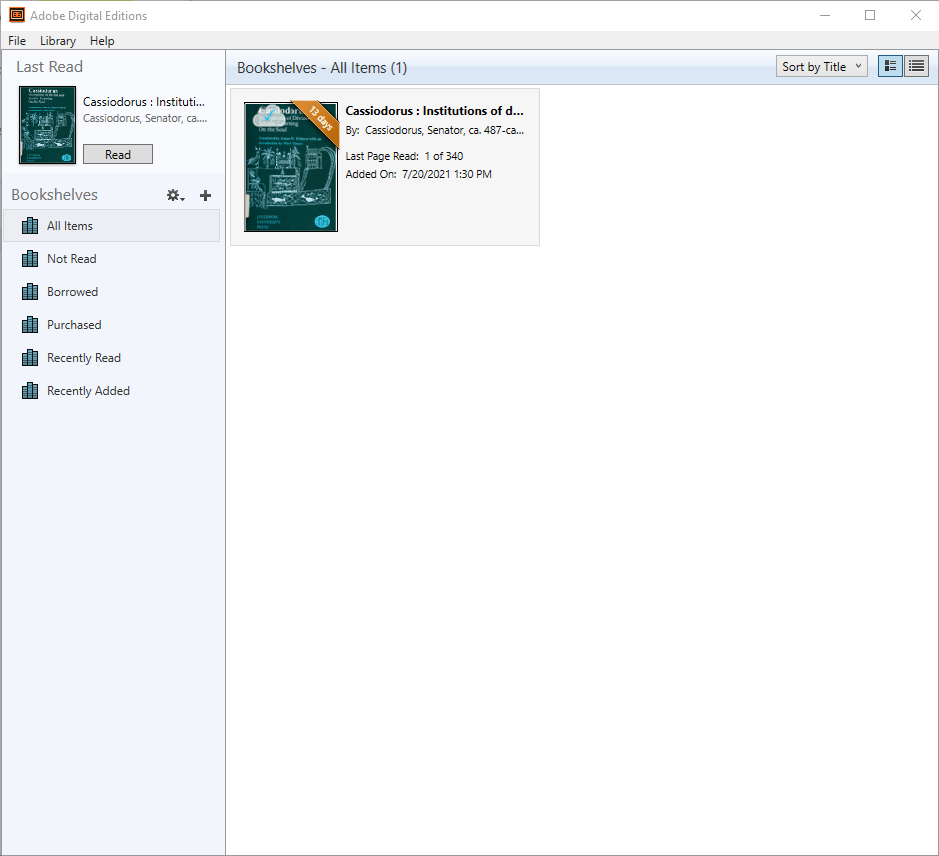The following Books (407 items) were received into the Library collection for both the Welshimer and Seminary Libraries through budgetary funds and expense accounts, and by donation in April and May 2021.
Seminary Library
Art
Figurines in Achaemenid period Yehud: Jerusalem’s history of religion and coroplastics in the monotheism debate, 2017.
History
Khalifa ibn Khayyat’s History on the Umayyad Dynasty (660-750), 2015.
Native: identity, belonging, and rediscovering God, 2020.
Theophilus of Edessa’s Chronicle and the circulation of historical knowledge in late antiquity and early Islam, 2011.
Three political voices from the age of Justinian: Agapetus, ‘Advice to the Emperor’: Dialogue on political science: Paul the Silentiary, ‘Description of Hagia Sophia’, 2009.
Torah, temple, and transaction: Jewish religious institutions and economic behavior in early Roman Galilee, 2020.
Language and Literature
A beginner’s guide to Dante’s Divine comedy, 2018.
On the nature of things and, On times by Bede, 2010.
Philosophy, Psychology, and Religion
The Acts of the Second Council of Nicaea (787), 2020.
After Whiteness: an education in belonging, 2020.
Always on: practicing faith in a new media landscape, 2019.
Clement of Alexandria and the shaping of Christian literary practice: miscellany and the transformation of Greco-Roman writing, 2020.
The Council of Ephesus of 431: documents and proceedings, 2020.
Family systems and congregational life: a map for ministry, 2019.
The forgotten Desert Mothers: sayings, lives, and stories of early Christian women, 2001.
The funerary speech for John Chrysostom, 2013.
Imperial invectives against Constantius II: Athanasius of Alexandria, History of the Arians, Hilary of Poitiers, Against Constantius and Lucifer of Cagliari, The necessity of dying for the Son of God, 2016.
Interpreting scripture with the great tradition: recovering the genius of premodern exegesis, 2018.
Interpreting the Parables, 2012.
An introduction to Christian mysticism: recovering the wildness of spiritual life, 2021.
An introduction to the Old Testament: the Canon and Christian imagination, 2020.
The letter and spirit of biblical interpretation: from the early church to modern practice, 2018.
The making of biblical womanhood: how the subjugation of women became gospel truth, 2021.
Marriage, scripture, and the church: theological discernment on the question of same-sex union, 2021.
The mind of the spirit: Paul’s approach to transformed thinking, 2016.
Missional theology: an introduction, 2020.
Models of evangelism, 2020.
The mystic way of evangelism: a contemplative vision for Christian outreach, 2017.
The myth of the Stone-Campbell movement, 2019.
Neither complementarian nor egalitarian: a kingdom corrective to the evangelical gender debate, 2016.
On the nature of man by Nemesius, 2008.
Opening Israel’s scriptures, 2019.
Origen: an introduction to his life and thought, 2019.
Prey tell: why we silence women who tell the truth and how everyone can speak up, 2021.
Reading Revelation responsibly: uncivil worship and witness: following the Lamb into the new creation, 2011.
Reading the New Testament as Christian scripture: a literary, canonical, and theological survey, 2020.
Religion in America by Lisa D. Pearce and Claire C. Gilliland, 2020.
Reparations: a Christian call for repentance and repair, 2021.
Rethinking Galatians: Paul’s vision of oneness in the living Christ, 2021.
The return of oral hermeneutics: as good today as it was for the Hebrew Bible and first-century Christianity, 2020.
Selfies: searching for the image of God in a digital age, 2018.
The spiritual child: the new science on parenting for health and lifelong thriving, 2016.
Spiritual disciplines for the Christian life, 2014.
Syriac Christian culture: beginnings to renaissance, 2020.
Theology as a way of life: on teaching and learning the Christian faith, 2019.
Two early lives of Severos, Patriarch of Antioch, 2013.
The Worship sourcebook, 2013.
Political Science
Augustine’s political thought, 2019.
New Testament Seminar
Faith in formulae :a collection of early Christian creeds and creed-related texts [3 volumes], 2017.
Luke as narrative theologian: texts and topics, 2020.
Reference
The Oxford handbook of Jonathan Edwards, 2021.
The Oxford handbook of the Septuagint, 2021.
A scripture index to rabbinic literature by Caleb T. Friedeman, 2021.
Welshimer Library
Art
Art and music in Venice: from the Renaissance to the Baroque, 2013.
Bruegel: the complete graphic works, 2019.
Building Nazi Germany: place, space, architecture, and ideology, 2020.
Emil Nolde: the artist during the Third Reich, 2019.
Fra Angelico and the rise of the Florentine Renaissance, 2019.
Frida in America: the creative awakening of a great artist, 2020.
John Singer Sargent: the sensualist, 2000.
The poster: a visual history, 2020.
Sofonisba’s lesson: a Renaissance artist and her work, 2019.
Strandbeest: the dream machines of Theo Jansen, 2014.
Vida Americana: Mexican muralists remake American art, 1925-1945, 2020.
William Blake, 2019.
Winslow Homer: his art, his light, his landscapes, 1997.
Education
Educating media literacy: the need for critical media literacy in teacher education, 2020.
Educational psychology: history, practice, research, and the future, 2019.
Making up our mind: what school choice is really about, 2019.
Race dialogues: a facilitator’s guide to tackling the elephant in the classroom, 2019.
Reading for action: engaging youth in social justice through young adult literature, 2019.
Visual culture, 2019.
History
1774: the long year of Revolution, 2021.
Africa and the Indian Ocean world from early times to circa 1900, 2019.
Ain’t I a woman: Black women and feminism, 2015.
American while black: African Americans, immigration, and the limits of citizenship, 2019.
Between Greece and Babylonia: Hellenistic intellectual history in cross-cultural perspective, 2019.
The Boston Massacre: a family history, 2020.
The Byzantine Hellene: the life of Emperor Theodore Laskaris and Byzantium in the thirteenth century, 2019.
The Cambridge history of the American Civil War, 2019.
Daily life in Nazi-occupied Europe, 2019.
El Norte: the epic and forgotten story of Hispanic North America, 2020.
The end of the myth: from the frontier to the border wall in the mind of America, 2019.
The firebird and the fox: Russian culture under Tsars and Bolsheviks, 2019.
Four hundred souls: a community history of African America, 1619-2019, 2021.
Freedom libraries: the untold story of libraries for African Americans in the South, 2019.
A history of Jordan, 2019.
Hitler: a biography, 2019.
Hitler: a global biography, 2019.
Islam, authoritarianism, and underdevelopment: a global and historical comparison, 2019.
The Kindertransport: contesting memory, 2019.
Lifestyle in Siberia and the Russian North, 2019.
The Middle Ages: facts and fictions, 2019.
The Middle East and the making of the modern world, 2017.
Not even past: the stories we keep telling about the Civil War, 2020.
Old Canaan in a new world: Native Americans and the lost tribes of Israel, 2020.
On the trail of Mary Queen of Scots, 1999.
Palestine: a four thousand year history, 2020.
The politics of the past in early China, 2020.
The rebel and the Imām in early Islam: explorations in Muslim historiography, 2020.
Reinterpreting Southern histories: essays in historiography, 2020.
Roots of the Black Chicago renaissance: new negro writers, artists, and intellectuals, 1893-1930, 2020.
Russia, the former Soviet republics, and Europe since 1989: transformation and tragedy, 2019.
South Africa, race and the making of international relations, 2020.
The South and the transformation of US politics, 2019.
Spying on the South: an odyssey across the American divide, 2020.
The successor: Tiberius and the triumph of the Roman Empire, 2019.
Under a darkening sky: the American experience in Nazi Europe: 1939-1941, 2018.
Unworthy republic: the dispossession of Native Americans and the road to Indian territory, 2020.
Walter Ralegh: architect of empire, 2019.
Will of the people: the revolutionary birth of America, 2021.
Language and Literature
Achilles beside Gilgamesh: mortality and wisdom in early epic poetry, 2019.
Anthem by Ayn Rand, 1953.
An artist of the floating world, 1989.
Bilingual children: a guide for parents, 2019.
Black and more than black: African American fiction in the post era, 2019.
Black Broadway: African Americans on the great white way, 2015.
Blue iris: poems and essays, 2004.
The buried giant, 2015.
Comics and stuff, 2020.
The complete and original Norwegian folktales of Asbjørnsen and Moe, 2019.
Dante’s Christian ethics: Purgatory and its moral contexts, 2020.
Fake news nation: the long history of lies and misinterpretations in America, 2019.
The Faust legend: from Marlowe and Goethe to contemporary drama and film, 2019.
Film as embodied art: bodily meaning in the cinema of Stanley Kubrick, 2019.
The five people you meet in heaven, 2003.
The five-minute linguist: bite-sized essays on language and languages, 2019.
Furious flower: seeding the future of African American poetry, 2020.
Geoffrey Chaucer in context, 2021.
Gulag literature and the literature of Nazi camps: an intercontexual reading, 2019.
Herodotus and the question why, 2021.
It’s always loud in the balcony: a life in black theater, from Harlem to Hollywood and back, 2019.
Journalism in the age of virtual reality: how experiential media are transforming news, 2019.
Klara and the sun, 2021.
Language endangerment, 2019.
Literature’s children: the critical child and the art of idealization, 2019.
The looking machine: essays on cinema, anthropology and documentary filmmaking, 2019.
Malory’s magic book: King Arthur and the child, 1862-1980, 2019.
Modernism, postcolonialism, and globalism: Anglophone literature, 1950 to the present, 2019.
The mousetrap, 2014.
The movie musical!, 2019.
The nickel boys: a novel, 2019.
Nocturnes: five stories of music and nightfall, 2009.
Nostalgia in print and performance, 1510-1613: merry worlds, 2019.
One man show: poetics and presence in the Iliad and Odyssey, 2020.
The overstory: a novel, 2019.
Poems by Elizabeth Bishop, 2011.
The poems of Louisa May Alcott, 2000.
Possessed by memory: the inward light of criticism, 2020.
The remains of the day, 1989.
Scale, space and canon in ancient literary culture, 2020.
Screening reality: how documentary filmmakers reimagined America, 2020.
Stephen King and American history, 2021.
Stephen King and American politics, 2021.
Stories and the brain: the neuroscience of narrative, 2020.
The struggle for understanding: Elie Wiesel’s literary works, 2019.
Swamp Souths: literary and cultural ecologies, 2020.
Tales of the South Pacific, 1947.
A theory of dramaturgy, 2019.
The unconsoled, 1995.
Unstable masks: whiteness and American superhero comics, 2020.
The view from somewhere: undoing the myth of journalistic objectivity, 2019.
The vintage Bradbury; Ray Bradbury’s own selection of his best stories, 1965.
Virginia Woolf: and the women who shaped her world, 2019.
When we were orphans, 2000.
The worlds of JRR Tolkien: the places that inspired Middle-Earth, 2020.
Law
Ancient legal thought: equity, justice, and humaneness from Hammurabi and the pharaohs to Justinian and the Talmud, 2019.
The Cambridge companion to comparative constitutional law, 2019.
The constitutional origins of the American civil war, 2019.
The disappearing First Amendment, 2019.
The Evening Star: the rise and fall of a great Washington newspaper, 2019.
Originalism’s promise: a natural law account of the American Constitution, 2019.
Religion, law, USA, 2019.
The second founding: how the Civil War and reconstruction remade the constitution, 2020.
Supreme inequality: the Supreme Court’s fifty-year battle for a more unjust America, 2021.
Medicine
Diagnostic and statistical manual of mental disorders: DSM-5, 2013.
DSM-5 handbook of differential diagnosis, 2014.
Elderhood: redefining aging, transforming medicine, reimagining life, 2021.
Gentling: a practical guide to treating PTSD in abused children, 2011.
Mind fixers: psychiatry’s troubled search for the biology of mental illness, 2020.
Racism: science & tools for the public health professional, 2019.
The undying: pain, vulnerability, mortality, medicine, art, time, dreams, data, exhaustion, cancer, and care, 2020.
Treating addiction: a guide for professionals, 2019.
Military Science
Militarization: a reader, 2019.
Music
The 100 most important people in musical theatre, 2019.
Angel song: medieval English music in history, 2019.
Bach and Mozart: essays on the enigma of genius, 2019.
The band’s visit, 2018.
Both from the ears & mind: thinking about music in early modern England, 2020.
Caroline, or Change: a musical, 2004.
Down a path of wonder, 2006.
For the love of music: a conductor’s guide to the art of listening, 2020.
Fun home, 2015.
Into the woods, 1989.
The light in the piazza, 2007.
Man of La Mancha; a musical play, 1966.
Music, myth and story in medieval and early modern culture, 2019.
The Spitfire Grill: a musical, 2002.
Summertime: George Gershwin’s life in music, 2020.
Philosophy and Religion
1 and 2 Timothy and Titus by Robert W. Wall and Richard B. Steele, 2012.
1 Peter by Joel B. Green, 2007.
1-3 John by Thomas Andrew Bennett, 2021.
2 Peter and Jude by Ruth Anne Reese, 2007.
Acts by Craig S. Keener, 2020.
Against: what does the white evangelical want?, 2019.
Anatomy of the soul: surprising connections between neuroscience and spiritual practices that can transform your life and relationships, 2010.
Becoming Beauvoir: a life, 2020.
Black: the history of a color, 2009.
Blue: the history of a color, 2001.
The Cambridge companion to natural law ethics, 2019.
The Cambridge handbook of wisdom, 2019.
Ecopiety: green media and the dilemma of environmental virtue, 2019.
Exemplars of truth, 2019.
Ezumezu: a system of logic for African philosophy and studies, 2019.
Faith in American public life, 2019.
The feeling of life itself: why consciousness is widespread but can’t be computed, 2019.
Galatians by Craig S. Keener, 2018.
Green: the history of a color, 2014.
Heart to heart: how your emotions affect other people, 2019.
Intentional churches: how implementing an operating system clarifies vision, improves decision-making, and stimulates growth, 2020.
Introduction to existentialism: from Kierkegaard to The Seventh Seal, 2020.
Judges by David J. H. Beldman, 2020.
The lost art of Scripture: rescuing the sacred texts, 2019.
Luke by F. Scott Spenser, 2019.
Mark by Darrell L. Bock, 2015.
Never doubt Thomas: the Catholic Aquinas as evangelical and Protestant, 2019.
Nietzsche and other Buddhas: philosophy after comparative philosophy, 2019.
Nihilism, 2019.
Power and technology: a philosophical and ethical analysis, 2019.
Red: the history of a color, 2017.
The supporting cast of the Bible: reading on behalf of the multitude, 2020.
Teaching Islamic studies in the age of ISIS, Islamophobia and the Internet, 2019.
The trellis and the vine: the ministry mind-shift that changes everything, 2009.
Understanding religious experience: from conviction to life’s meaning, 2020.
The varieties of nonreligious experience: atheism in American culture, 2019.
Ways of heaven: an introduction to Chinese thought, 2019.
Yellow: the history of a color, 2019.
Political Science
Against borders: why the world needs free movement of people, 2020.
Against free speech, 2020.
The age of migration: international population movements in the modern world, 2020.
And yet they persisted: how American women won the right to vote, 2020.
Breaking the two-party doom loop: the case for multiparty democracy in America, 2020.
Culture and order in world politic, 2020.
Democracy and dictatorship in Europe: from the Ancien régime to the present day, 2021.
Empire of democracy: the remaking of the West since the Cold War, 1971-2017, 2019.
Enchanted America: how intuition and reason divide our politics, 2018.
Globalization matters: engaging the global in unsettled time, 2019.
The long southern strategy: how chasing white voters in the South changed American politics, 2021.
Mirrorlands: Russia, China, and journeys in between, 2019.
No vote for women: the denial of suffrage in reconstruction America, 2019.
Overcoming intractable conflicts: new approaches to constructive transformations, 2019.
This land is our land: an immigrant’s manifesto, 2019.
Turkey between democracy and authoritarianism, 2019.
Science
Analytical mechanics, 2018.
Artificial intelligence: a guide for thinking humans, 2019.
The biology of reproduction, 2019.
The book of why: the new science of cause and effect, 2020.
Foundations of data science, 2020.
The last lecture, 2008.
The logic in philosophy of science, 2019.
Losing Earth: a recent history, 2020.
The scientific attitude: defending science from denial, fraud, and pseudoscience, 2019.
The story of more: how we got to climate change and where to go from here, 2020.
Until the end of time: mind, matter, and our search for meaning in an evolving universe, 2021.
Social Sciences
The abortionist: a woman against the law, 2019.
Affectionate communication in close relationships, 2019.
Alcohol and humans: a long and social affair, 2020.
Bathroom battlegrounds: how public restrooms shape the gender order, 2020.
Caste: the origins of our discontents, 2020.
Caught in the path of Katrina: a survey of the hurricane’s human effects, 2019.
Children in changing worlds: sociocultural and temporal perspectives, 2019.
City on a hill: urban idealism in America from the Puritans to the present, 2019.
Deported to death: how drug violence is changing migration on the US-Mexico border, 2019.
Dress in the age of Jane Austen: Regency fashion, 2019.
Empire of guns: the violent making of the Industrial Revolution, 2018.
Free Cyntoia: my search for redemption in the American prison system, 2020.
The global economy: a concise history, 2020.
The goodness paradox: the strange relationship between virtue and violence in human evolution, 2019.
How to divide when there isn’t enough: from Aristotle, the Talmud, and Maimonides to the axiomatics of resource allocation, 2019.
Intersectionality as critical social theory, 2019.
Invisible women: data bias in a world designed for men, 2021.
The last empires: governing ourselves, our nations, and our world, 2019.
Management studies in crisis: fraud, deception and meaningless research, 2019.
Maoism: a global history, 2020.
Neighborhood defenders: participatory politics and America’s housing crisis, 2020.
No visible bruises: what we don’t know about domestic violence can kill us, 2020.
Organizations for people: caring cultures, basic needs, and better lives, 2020.
Possessed: why we want more than we need, 2019.
The power of strategic listening, 2020.
The practice of folklore: essays toward a theory of tradition, 2019.
Queer faith: reading promiscuity and race in the secular love tradition, 2019.
Reading minds: how childhood teaches us to understand people, 2020.
Searching for the anthropocene: a journey into the environmental humanities, 2020.
A sense of inequality, 2020.
Sign language phonology, 2019.
Skin deep: dispelling the science of race, 2020.
Taxation, 2020.
Technology in the Industrial Revolution, 2020.
Thanks for watching: an anthropological study of video sharing on YouTube, 2019.
Understanding the experience of disability: perspectives from social and rehabilitation psychology, 2019.
We should all be feminists, 2015.
Whisper tapes: Kate Millett in Iran, 2019.
Women and the land 1500-1900, 2019.
Technology
The decisive network: Magnum Photos and the postwar image market, 2020.
Edison, 2020.
Lewis Carroll’s photography and modern childhood, 2020.
Make, think, imagine: engineering the future of civilization, 2021.
Physics of semiconductor devices, 2021.
Archives
Stephen King and American history, 2021.
Stephen King and American politics, 2021.
Juvenile
All thirteen: the incredible cave rescue of the Thai boys’ soccer team, 2020.
The bear in my family, 2020.
Box: Henry Brown mails himself to freedom, 2020.
The cat man of Aleppo, 2020.
Double bass blues, 2019.
Fighting words, 2020.
Genesis begins again, 2019.
Going down home with Daddy, 2019.
The graveyard book, 2008.
Me & Mama, 2020.
Outside in, 2020.
A place inside of me: a poem to heal the heart, 2020.
See the cat: three stories about a dog, 2020.
We are water protectors, 2020.
We dream of space, 2020.
What about worms!?, 2020.
When you trap a tiger, 2020.
A wish in the dark, 2020.
Zip, zoom!, 2020.
Reference
The book of Amos by R. Carroll and M. Daniel, 2020.
The Book of Judges by Barry G. Webb, 2012.
The Book of Zechariah by Mark J. Boda, 2016.
The books of Haggai and Malachi by Mignon R. Jacobs, 2017.
The books of Nahum, Habakkuk, and Zephaniah by Thomas Renz, 2021.
The Epistle to the Hebrews by Gareth Lee Cockerill, 2012.
The First Epistle to the Corinthians by Gordon D. Fee, 2014.
The letter of James by Scot McKnight, 2011.
The letter to the Colossians by Scot McKnight, 2018.
The letter to the Ephesians by Lynn H. Cohick, 2020.
The letter to the Galatians by David Arthur DeSilva, 2018.
The letter to the Romans by Douglas J. Moo, 2018.
The Letter to Philemon by Scot McKnight, 2017.
The Second Book of Samuel by David Toshio Tsumura, 2019.
DVDs
1917.
100 years of Olympic films: 1912-2012.
12 Years a Slave.
American graffiti: drive-in double feature.
American history X.
Breaker Morant.
Coraline.
Dot and the kangaroo.
Flushed away ; Chicken run ; Wallace & Gromit, curse of the were-rabbit.
The ghost and Mr. Chicken.
The good place: the final season.
Hail Satan?.
Harriet.
Khumba.
Little women.
Looney tunes golden collection.
The omen.
Parenthood: Season 1.
Parenthood: Season 2.
Parenthood: Season 3.
Parenthood: Season 4.
Parenthood: Season 5.
Parenthood: Season 6.
Popeye, the sailor, the 1940s, Volume 1.
Popeye, the sailor, the 1940s, Volume 2.
The Professor: tai chi’s journey west.
Road to Avonlea Season 1.
Road to Avonlea Season 2.
Road to Avonlea Season 3.
Road to Avonlea Season 4.
Road to Avonlea Season 5.
Road to Avonlea Season 6.
Road to Avonlea Season 7.
Saving Private Ryan.
Say anything.
Simpsons: Season 11.
Stand by me.
This is us: Season 1.
This is us: Season 2.
This is us: Season 3.
Three fantastic journeys by Karel Zeman.
Touki bouki.
A trip to the moon.
La vie en rose.
Watership down.
What’s eating Gilbert Grape?.
Zarafa.
Donated Gift Items to the Milligan Libraries
Altared: the true story of a she, a he, and how they both got too worked up about we.
Ape and essence.
A field guide to eastern trees: eastern United States and Canada, including the Midwest.
Gay marriage: why it is good for gays, good for straights, and good for America.
The globalization of nothing 2.
Lived religion: faith and practice in everyday life.
McDonaldization: the reader.
The McDonaldization of society 5.
The sacred canopy: elements of a sociological theory of religion.
Selected writings of Jonathan Edwards.
The social construction of reality: a treatise in the sociology of knowledge.
The victory of reason: how Christianity led to freedom, capitalism, and Western success.
When two become one: enhancing sexual intimacy in marriage.
White privilege: essential readings on the other side of racism.
Wildflowers of Tennessee, the Ohio Valley, and the Southern Appalachians.
The wings of the dove.
Women and religion.

